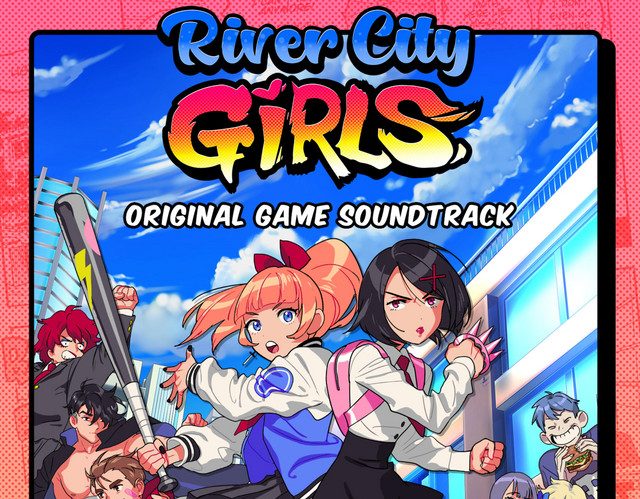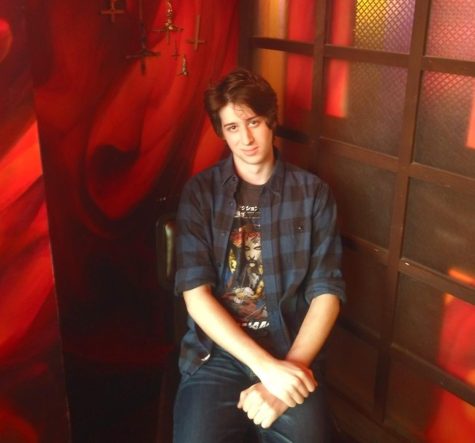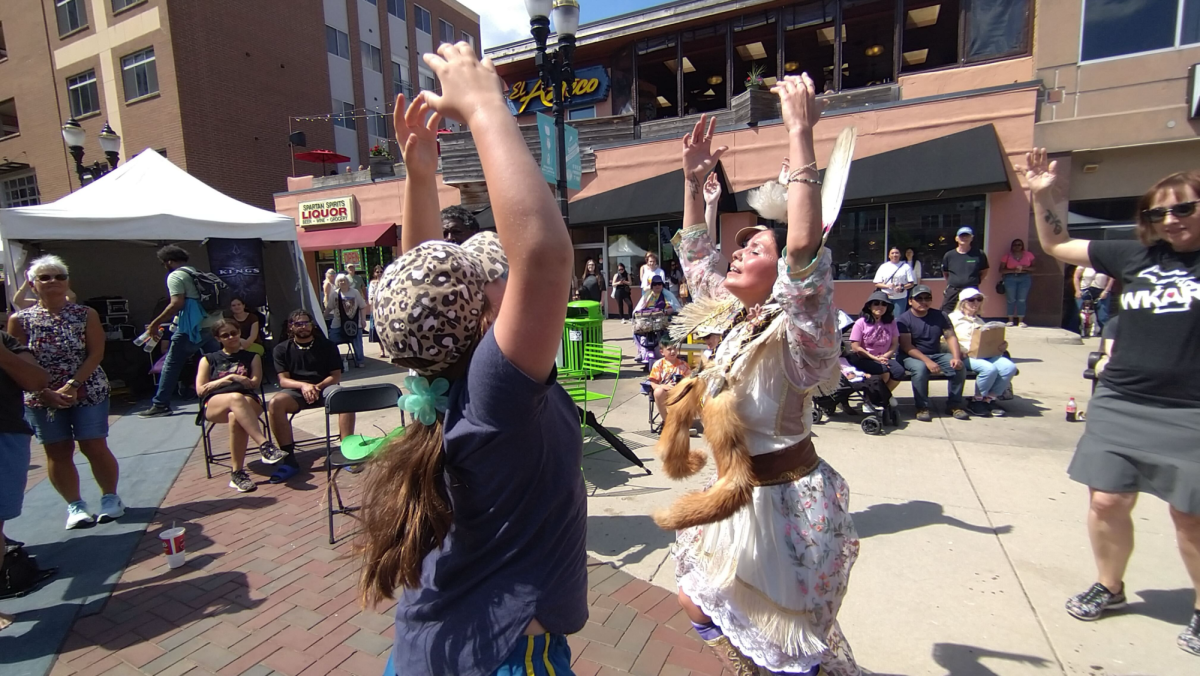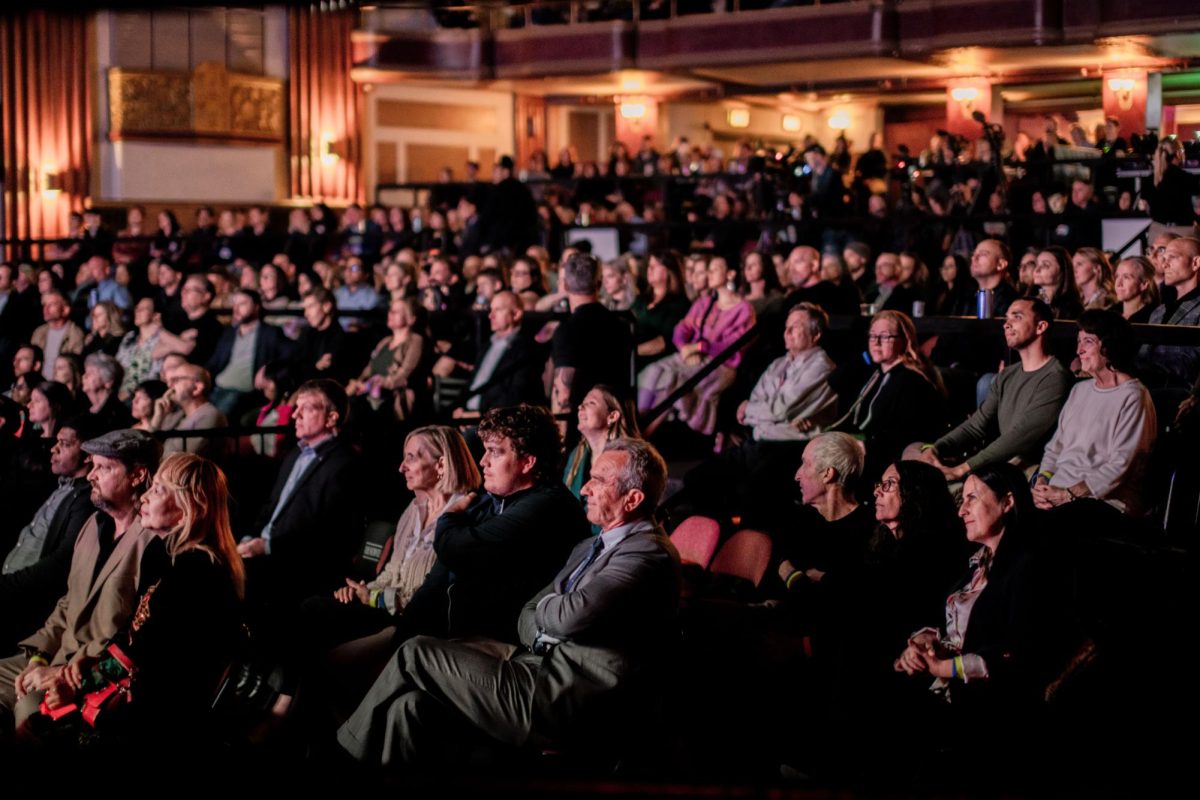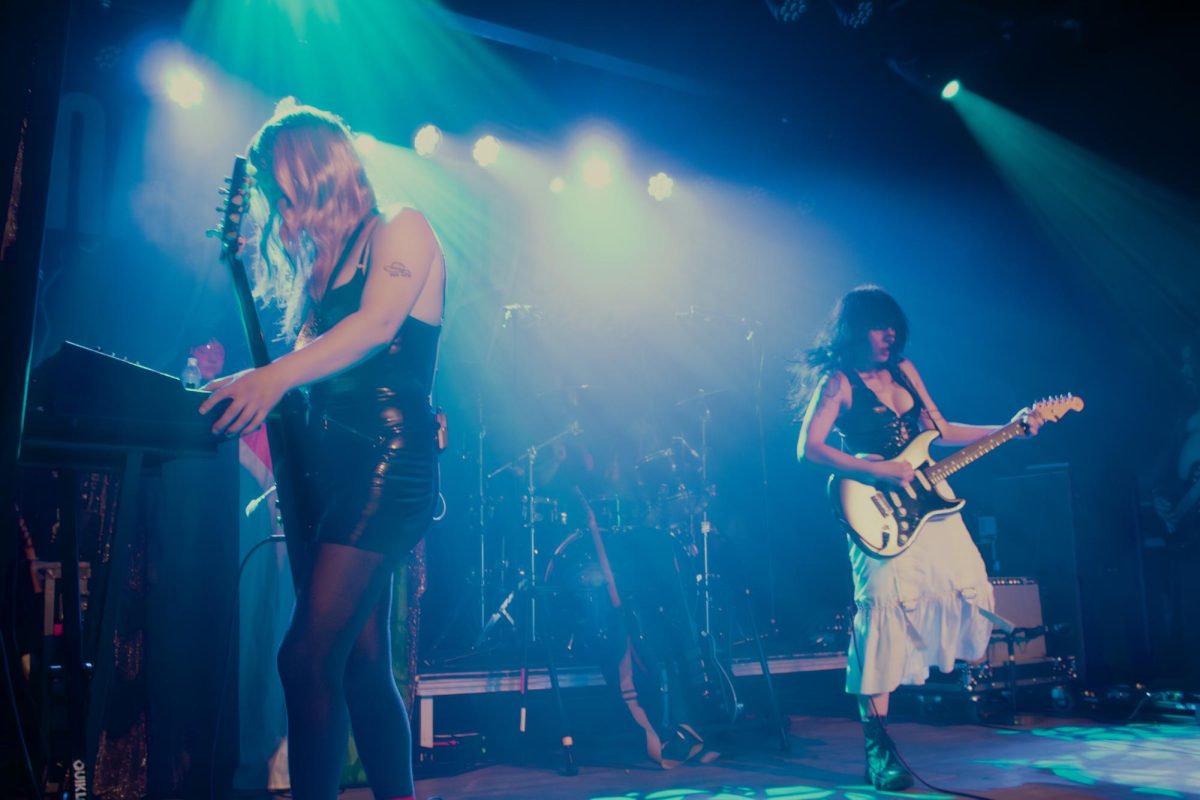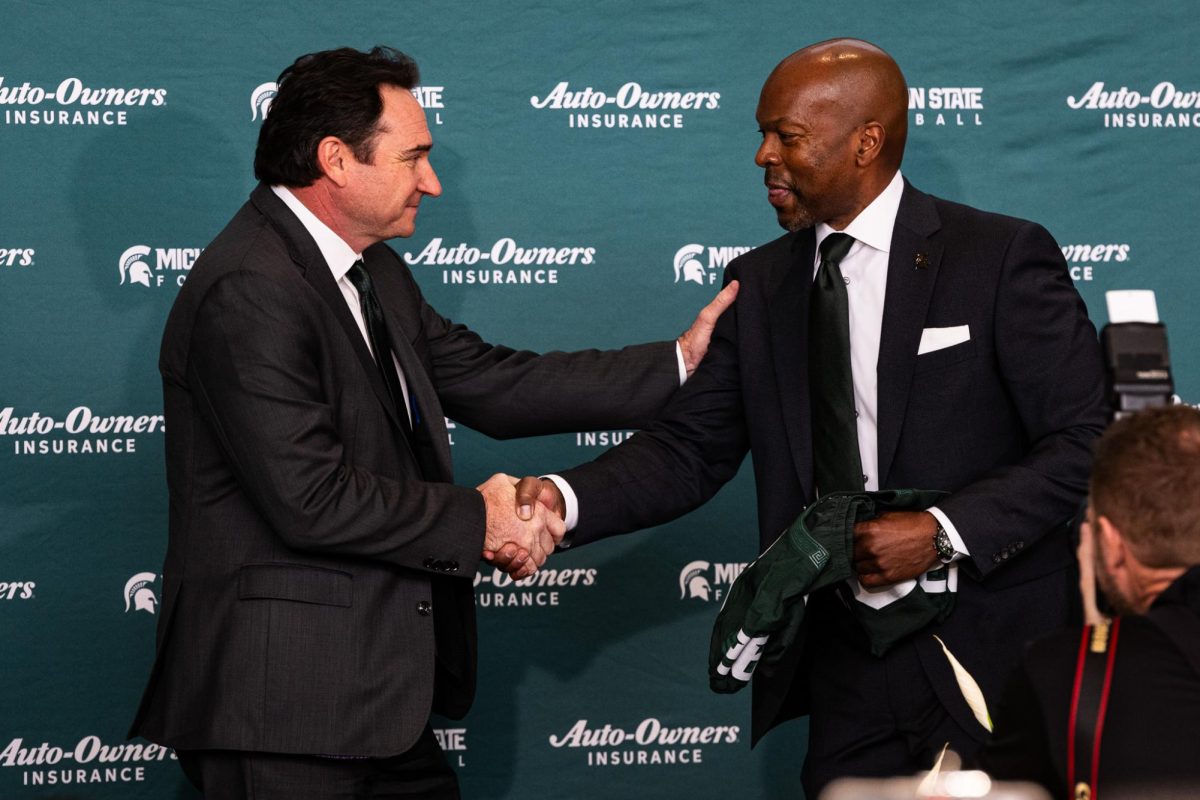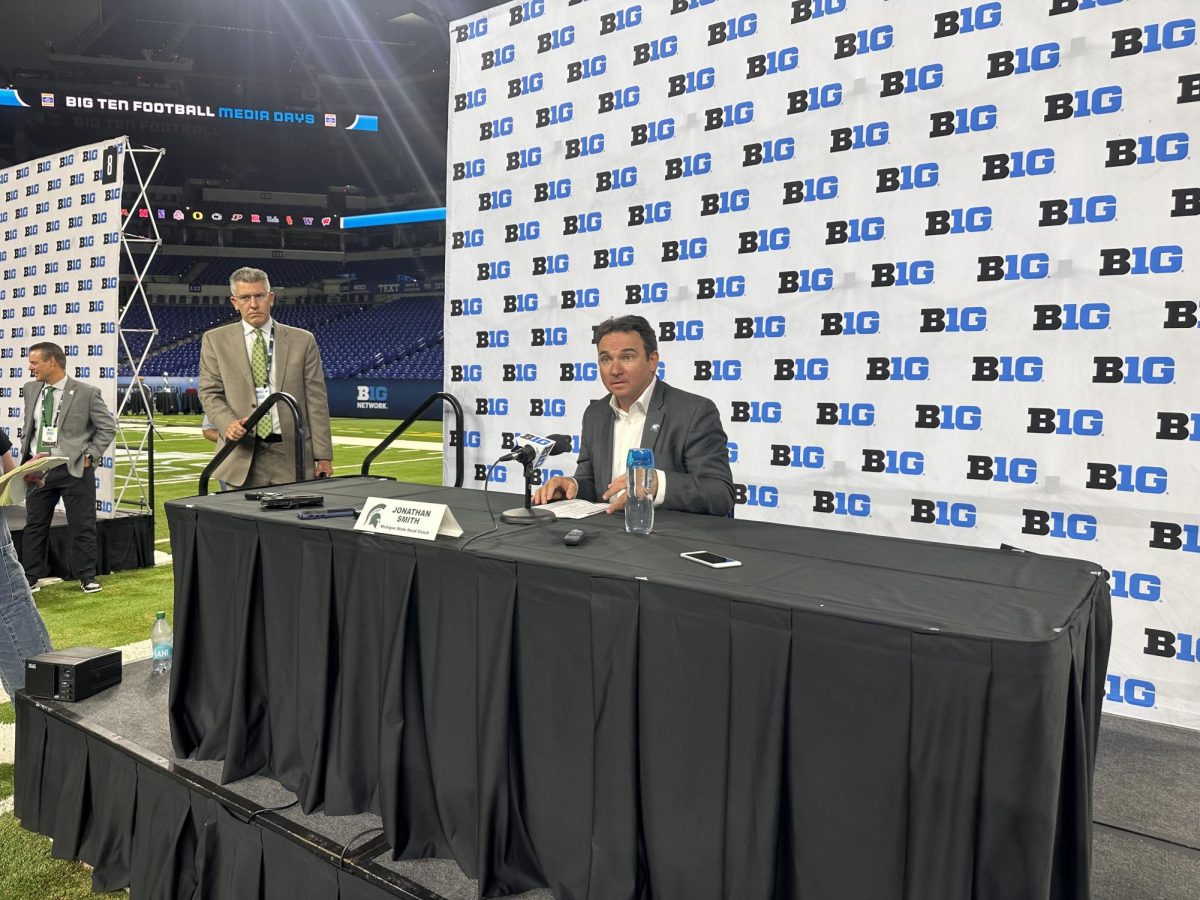We Play It For The Music | River City Girls
December 14, 2020
“River City Girls” is a love letter to the classic beat ‘em up games of the ‘80s and ‘90s. Released in 2019 by WayForward Technologies in collaboration with fighting-game giants Arc System Works, the Kunio-kun series game acted as a revival of an all-but-forgotten genre.
While “River City Girls” may belong to the same franchise as classics like “Double Dragon,” “River City Ransom” and “Crash ‘n’ the Boys: Street Challenge,” the game references many nostalgic franchises as well. With a control scheme inspired by 2010’s Scott Pilgrim vs. The World and easter eggs referencing everything from Castlevania to JoJo’s Bizarre Adventure, “River City Girls” isn’t subtle about where it draws influence from.
The game comes pre-programmed with plenty of arcade-era homages, but the retro-inspired synthpop soundtrack is what really sells the game’s overall atmosphere. Composed by Megan McDuffee, the pulsing beats of the background track create an energetic atmosphere to help you fight your way through the streets of River City.
It would be a crime not to mention the game’s opening theme as one of its highlights. Featuring growling guitar riffs from YouTube musician Nathan Sharp and vocals by actress and media personality Cristina Vee, everything you need to know about the game lies right there in the lyrics. It’s horribly on the nose and more than a little cheesy, but in the way where you can’t help but smile and nod your head along as you listen.
Also worthy of mention is “Detention,” one of the first songs you hear in the game. After a brief bit of narration, you’re plunged straight into the action as this pulsing track plays in the background. With its splashy backbeat blending into flowy synth melodies, this song keeps the energy light while you brawl your way out of the classroom.
“Knockout” acts as yet another standout hit that just screams determination. On this track the game steps away from the bounciness seen in other tracks to create a song fit for a digital beatdown. It pushes the player forward with its punchy beats and repetitious chimes that shift in key as the song continues, creating a feeling of urgency. If the backing beat of this song wasn’t addicting enough, it even makes a periodic return in a later track, “Smackdown,” which blends vibes from classic arcade games with more retro-inspired synthwave to create a truly modern arcade atmosphere. Both songs are also featured remixes from earlier games in the Kunio-Kun franchise, sneaking in even more subtle references for long-time fans of the series.
Some of the most charming pieces of the “River City Girls” soundtrack are its vocal feature tracks, and “The Hunt” is no exception. By layering composer Megan McDuffee’s vocals over a simple beat you get a wonderful synthwave track that harkens back to that idealized vision of the ‘80s that many hold dear. With the double meanings in the lyrics, “The Hunt” acts both as a love song and a revenge song. It’s a cute reminder about what this game is all about—hunting down the shady characters who kidnapped your boyfriend.
One of the most charming parts of playing “River City Girls” is experiencing how the tone of the soundtrack changes as you move between different districts of the city. There are few better examples of this than “Drive” and “Payday.” While “Drive” plays in the crosstown area outside of the mall near all the bustle and construction, “Payday” plays in the setting’s more ritzy uptown district. While one track captures the hostility and busyness of a local shopping center, the other conveys an uncomfortable air of being way too broke to belong, taunting the player into proving they own the streets.
Finally, it would be a shame not to talk about the bosses’ introductions and fight themes. One of the shining features of “River City Girls” is its bold, diverse character designs. From a spidery fashion designer to a killer rock musician, this game gives Scott Pilgrim’s League of Evil Exes a run for their money. Rather than skimp out by playing the same background music for each boss, the game goes big by giving each character a unique intro and combat theme. While the intros are short, they set the tone for each boss’s personality. The same holds true for the boss themes. Every single one of these tracks creates a sense of frantic energy that perfectly matches the challenge you’re being thrown up against. Considering that all but one of these songs was created alongside chiptune artist Chipzel, the music with the difficulty truly calls back to the retro beat ‘em up experience.
Overall, “River City Girls” provides a modern twist on a genre that has been dearly missed in recent years. By combining the best of modern and retro games, WayForward creates a game that simply oozes style, taking a general concept and building it into a complete interactive experience. While the story beats and dialogue offer frequent reminders that you’re playing as an endearing pair of teenagers on a mission to rescue their boyfriends, the gameplay reminds you that underneath the layers of bubblegum and kawaii accessories the protagonists are still badass delinquents.
When it comes to these two contrasting themes, the soundtrack marries both, creating an atmosphere that is fun at times and empowering at others. From the soundtrack, to the easter eggs to its connection to some of the beat ‘em up genres biggest titles, “River City Girls” is sure to hold on to its cult fame for many years to come.


